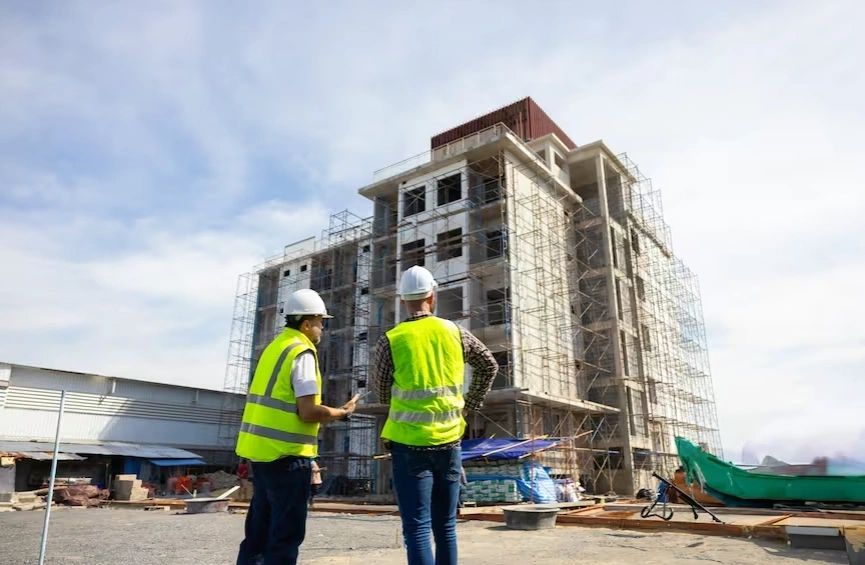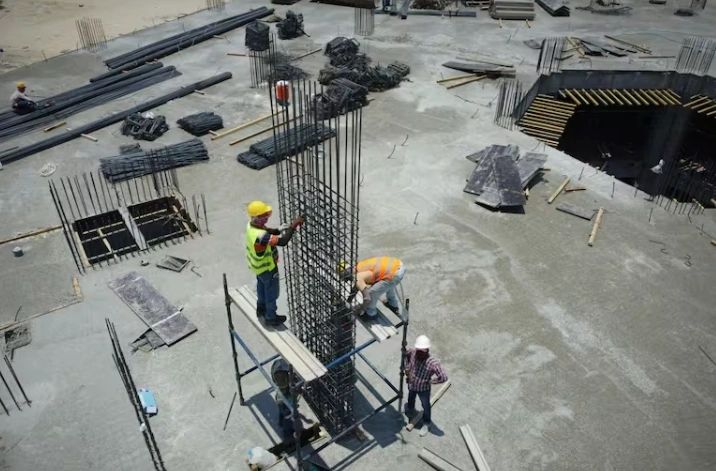BuySellBA
Administrator
Building isn’t just about putting up walls”: a developer dares to share what no one else reveals - La Nacion Propiedades

Source:

 www.lanacion.com.ar
www.lanacion.com.ar
September 01, 2025
In Buenos Aires, the cost of construction goes far beyond cement, iron and labor.
By Andres Brody

The developer reveals all the costs facing the construction sectorShutterstock
In the City of Buenos Aires, building isn't just about putting up walls : it's about navigating a tangle of taxes, fees, and administrative processes that make projects more expensive and delay their execution . For those of us who work in the real estate sector, the initial tax burden can represent between 10% and 15% of a development's total value. Gross Income, Stamp Tax , construction rights, urban capital gains, registry fees ... the list is extensive, and each item erodes margins and production capacity.
One of the taxes that generates the greatest distortion is the Gross Income Tax . Although its rate seems moderate (3% to 3.5%), its effect is multiplied because it impacts the entire production chain : from the materials manufacturer, the distributor, and the construction company, all the way to the final invoice to the buyer. Each link passes that cost on to the next , generating a cumulative increase that does not respond to real added value, but rather to a cascade of taxes.
The result is a higher final price for the consumer and a narrower margin for the developer , who ends up competing with an artificial overcharge created by the tax structure itself.
Added to this is the urban capital gains tax , also known as the Right to Urban Development and Sustainable Habitat. In practice, this tax can represent more than 20% of the construction cost per square meter in certain projects, depending on the area, the authorized construction capacity, and the type of development. This additional burden directly impacts the economic viability of projects , forcing price recalculations and, in many cases, discouraging the start of new construction projects .

According to Brody, one of the taxes that generates the greatest distortion is the Gross Income Tax.
Another of the most controversial taxes is the Stamp Tax , which in real estate sales entails paying 3.5% of the deeded value . Although practice dictates that it is shared between buyer and seller, in asset terms this tax directly affects property rights : the owner never legally owns 100% of the property's value, since each time it is transferred, the City appropriates 3.5%. In other words, an owner acquires and maintains an asset that is always subject to a forced deduction. Strictly interpreted, the State participates in each transaction as if it were a co-owner of 3.5% , which violates the constitutional principle of full private property.
Paradoxically, while the developer assumes high costs and long deadlines to complete a project, the real long-term winner is the local State itself .
Each new building immediately increases the tax base : more ABL, more property tax, and future revenue from each purchase and sale transaction. Where once there was a single lot, now there are dozens of units paying taxes every year. The problem is that this virtuous cycle could be much more productive if the City acted more swiftly and strategically .
The procedures for obtaining building permits and permits are slow and complex, tying up capital, raising financial costs, and slowing production. If the city government were more agile in its processes, more developments would be generated , there would be a greater housing supply, prices would tend to moderate, and, at the same time, structural tax revenue would grow without the need to carry so much weight in the initial stages or maintain questionable taxes that erode property rights.
www.buysellba.com
Source:
“Construir no es solo levantar paredes”: un desarrollador se anima a contar lo que nadie revela
En Buenos Aires, el costo de construir va mucho más allá del cemento, el hierro y la mano de obra
September 01, 2025
In Buenos Aires, the cost of construction goes far beyond cement, iron and labor.
By Andres Brody

The developer reveals all the costs facing the construction sectorShutterstock
In the City of Buenos Aires, building isn't just about putting up walls : it's about navigating a tangle of taxes, fees, and administrative processes that make projects more expensive and delay their execution . For those of us who work in the real estate sector, the initial tax burden can represent between 10% and 15% of a development's total value. Gross Income, Stamp Tax , construction rights, urban capital gains, registry fees ... the list is extensive, and each item erodes margins and production capacity.
One of the taxes that generates the greatest distortion is the Gross Income Tax . Although its rate seems moderate (3% to 3.5%), its effect is multiplied because it impacts the entire production chain : from the materials manufacturer, the distributor, and the construction company, all the way to the final invoice to the buyer. Each link passes that cost on to the next , generating a cumulative increase that does not respond to real added value, but rather to a cascade of taxes.
The result is a higher final price for the consumer and a narrower margin for the developer , who ends up competing with an artificial overcharge created by the tax structure itself.
Added to this is the urban capital gains tax , also known as the Right to Urban Development and Sustainable Habitat. In practice, this tax can represent more than 20% of the construction cost per square meter in certain projects, depending on the area, the authorized construction capacity, and the type of development. This additional burden directly impacts the economic viability of projects , forcing price recalculations and, in many cases, discouraging the start of new construction projects .

According to Brody, one of the taxes that generates the greatest distortion is the Gross Income Tax.
Another of the most controversial taxes is the Stamp Tax , which in real estate sales entails paying 3.5% of the deeded value . Although practice dictates that it is shared between buyer and seller, in asset terms this tax directly affects property rights : the owner never legally owns 100% of the property's value, since each time it is transferred, the City appropriates 3.5%. In other words, an owner acquires and maintains an asset that is always subject to a forced deduction. Strictly interpreted, the State participates in each transaction as if it were a co-owner of 3.5% , which violates the constitutional principle of full private property.
Paradoxically, while the developer assumes high costs and long deadlines to complete a project, the real long-term winner is the local State itself .
Each new building immediately increases the tax base : more ABL, more property tax, and future revenue from each purchase and sale transaction. Where once there was a single lot, now there are dozens of units paying taxes every year. The problem is that this virtuous cycle could be much more productive if the City acted more swiftly and strategically .
The procedures for obtaining building permits and permits are slow and complex, tying up capital, raising financial costs, and slowing production. If the city government were more agile in its processes, more developments would be generated , there would be a greater housing supply, prices would tend to moderate, and, at the same time, structural tax revenue would grow without the need to carry so much weight in the initial stages or maintain questionable taxes that erode property rights.
www.buysellba.com

